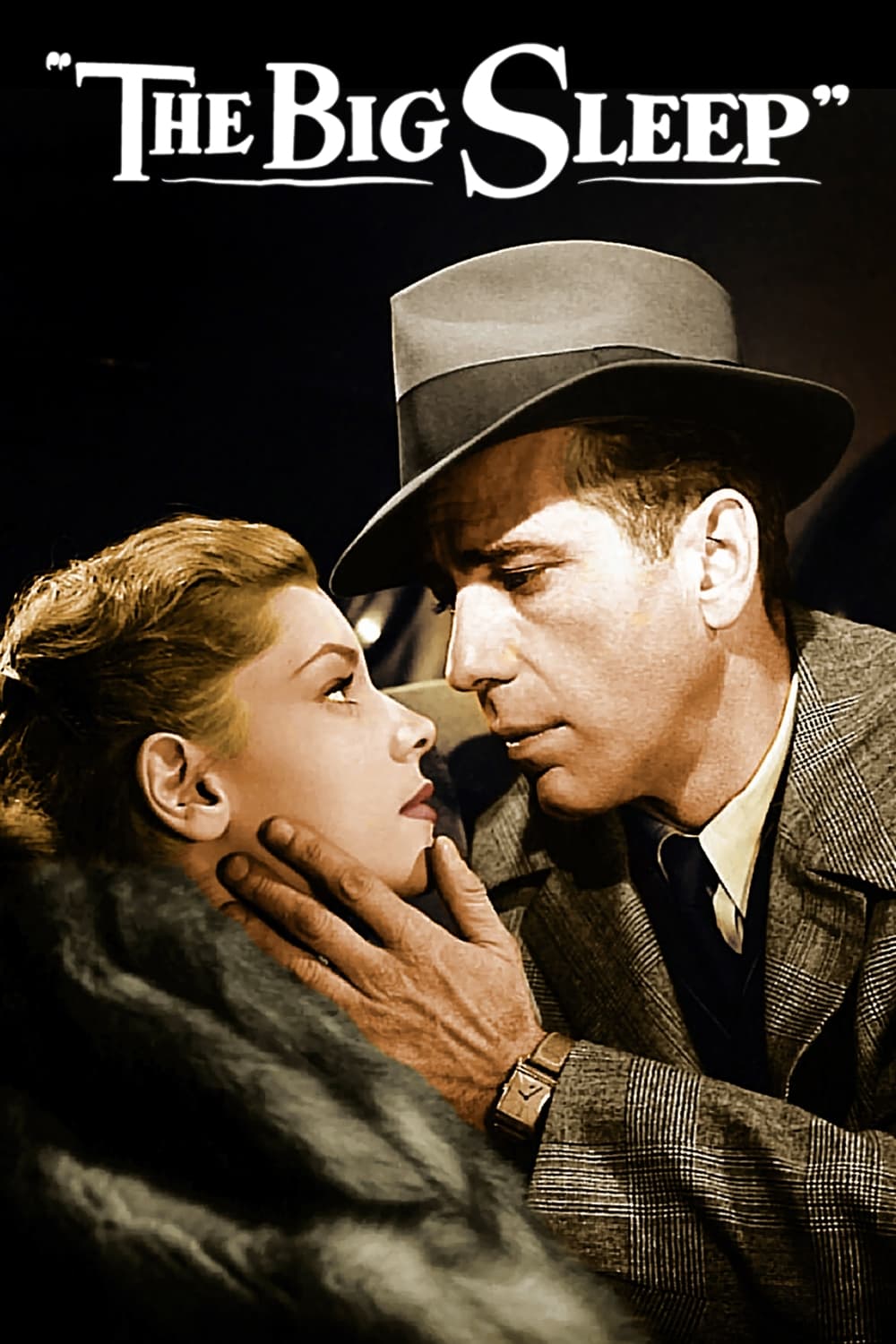
Private Investigator Philip Marlowe is hired by wealthy General Sternwood regarding a matter involving his youngest daughter Carmen. Before the complex case is over, Marlowe sees murder, blackmail, deception, and what might be love.
12 Aug The Big Sleep (1946)
Camera in the Head
I’m an enthusiast of film, the kind of film that uses the uniquely cinematic qualities of the medium. From time to time, I see a non-cinematic film which I like. This is one such.
By non-cinematic, I mean that the film is not more than play. Film adds only a few things: the ability to control the lighting in acutely dramatic ways: and the ability to project personalities at the mass level. What’s new is the shifting of the narrative: older detectives were disengaged unravellers of the story. The viewer may know more than the detective or not, but the detective was clearly on our side of the boundary: our avatar within the action. It is no accident that the story features a camera in a head, and that there is a reference to Proust.
The big deal here is the placing of ourselves not only in the story as an unraveller, but as a an unwitting participant in the weaving of the story. That’s not just Marlowe, that’s us, and the thrill is that we have no distance at all or no comprehension of where it is going.
It is not film so much as a milestone in “movies”. Welles and Polanski would turn this turn into cinematic films.
That post was deleted by a complaint from a Christian warrior whom I somehow offended. The replacement is below.
I’m trying to piece together a story about noir, what it is, how it works and where it came from.
It seems to me that noir — what I call noir — is bigger than what it is normally tagged as. It is deep, a new notion of how the world works and how we narrate it. I think like jazz, it is peculiarly American in origin.
The backbone of noir, I believe comes from a stew of experiments in the thirties with legs in the detective story and the movie-about-movies or “shows.” It became more distinctly cinematic and tied to formal narrative devices with “Citizen Kane.” That’s my story and I intend sticking to it. After that, you can see how the young thing was shaped, not entirely with deliberation. I think this was a milestone of noir and much of it was by accident.
The books are based on one simple notion, I believe, that Marlowe was the only soul we see that isn’t trying to force the universe, trying to be someone. He just is. He just accepts the world and what it serves up, perhaps noticing that the world seems to be designing coincidental impediments. (These are created by us watching, but that’s another story.)
Plus, he is primarily motivated to “see” what things are all about. Halfway through this, he apparently solves the problem, but still has to keep looking, “detecting.”
Now for the accidental amplification of the genre. Books nearly always are reduced in translating to film. There’s just more space for more events in books. But with this type of mystery, you just cannot take bits out. So Faulkner and partner kept it all in, all wedged together. Its too much and confuses the ordinary viewer, at least the kind who really wants to “understand.” But the whole point of noir as it has grown up is that fate is capricious and that the world presents some “dark logic” that we can’t quite reach. We can sort out the shreds that fall from the sky, but beyond is some machine that we can never see.
So the fact that this movie makes less sense than we expect matters. I think it is an accident of talent, that it wasn’t intended. But its effective as all getout to be encountered with confusion just as Marlowe is, though he gets to pull his ear. And we just get to pull our eyes.
There’s a strange overlay between the zen acceptance that Marlowe has for the inexplicable world, and the fact that overtly horny women flock to him. I think the attraction is less the usual wisdom and strength, but a similar sort of calmness that comes from simple recognition that the world isn’t logical.
Posted in 2003
Ted’s Evaluation — 3 of 3: Worth watching.


No Comments